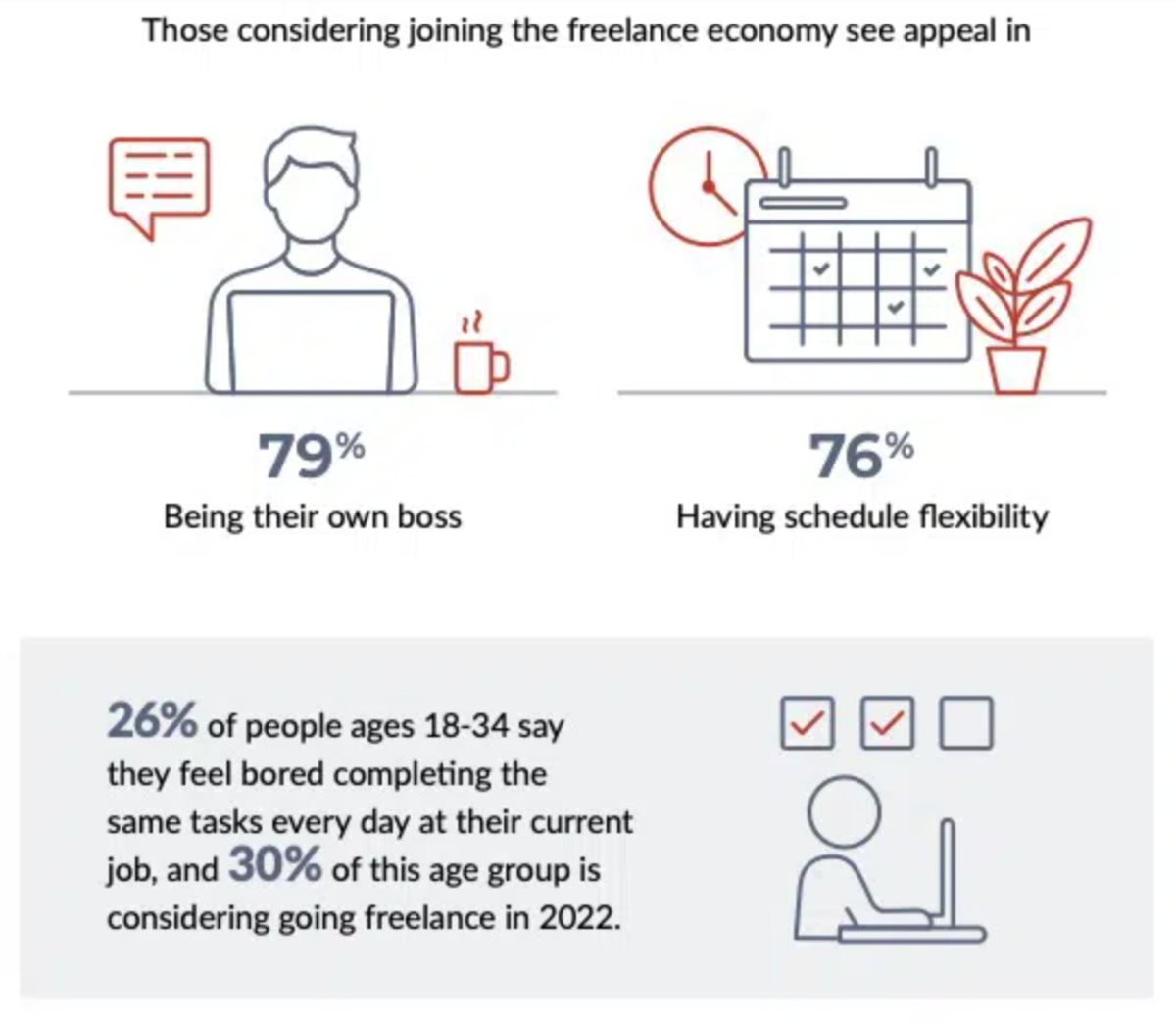While the push for better work-life balance has been steadily gaining steam over the last decade, the pandemic is what cemented this priority for many.
Nearly 40% of white-collar, or knowledge workers named work-life balance above salary as the most important element of a job, a study from finance startup for freelancers Paro found. 29% stuck to compensation and 13% prioritized opportunities for professional growth.
While the study was limited to 2,042 adults who work in “knowledge” industries (law, writing, programming vs. service or manual labor), an emerging trend was that many have been concerned about work stress and not afraid to find jobs that minimize it.
35% of workers felt stress was the most difficult thing about their current job while 28% named feeling unappreciated and another 22% named excessive bureaucracy.
Image source: TheStreet.
So What Do Knowledge Workers Want?These findings arrive amid a massive labor shortage and record numbers of workers leaving their jobs in what is known as The Great Resignation — in December alone, 4.3 million workers across the country left their jobs for better opportunities.
While this trend was highest in accommodation and food services due to the dangers of being customer-facing during a pandemic (6.9% of all workers in these industries quit in November), knowledge workers are also quitting in great numbers. According to the study, 31% of all knowledge workers are already freelancers while 17% of those who are considering making that leap in 2022.
Paro
“Workers are embracing the silver linings of the pandemic – remote work and greater time with family – and the freelance economy is poised to welcome these professionals and help them take their careers to new heights,” Paro CEO Anita Samojednik said in a statement.
How Can Employers Attract and Retain White Collar Workers?With more job vacancies than people who can or want to fill them, employers are often the ones who need to “compete” for workers — not just with higher salaries but also with benefits, flexible schedules, and the above-mentioned work-life balance.
Keep in mind that employers are competing not only with other employers but also the increasingly appealing freelance life. According to the study, those who are hoping to become freelancers in 2022 named being their own boss (79%), schedule flexibility (76%), and opportunities for building their own business (60%) as their primary motivations.
“With the Great Resignation showing no sign of abating, it’s more important than ever that employers listen to the needs of their people and adapt accordingly,” Samojednik said. “Our research made it clear that earning a larger paycheck is no longer a sufficient motivator for coping with inflexible schedules.”
